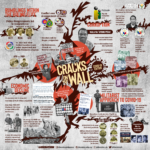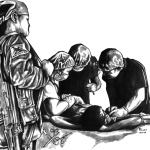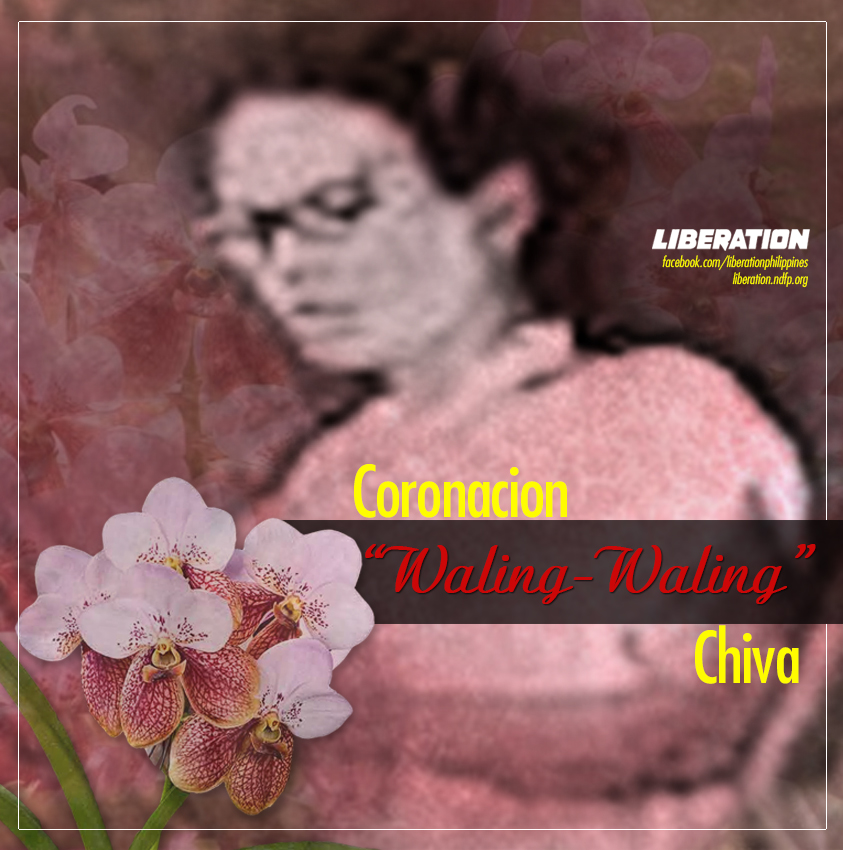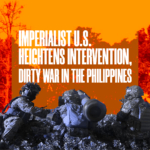The Jennifer “Maria” Cariño Command
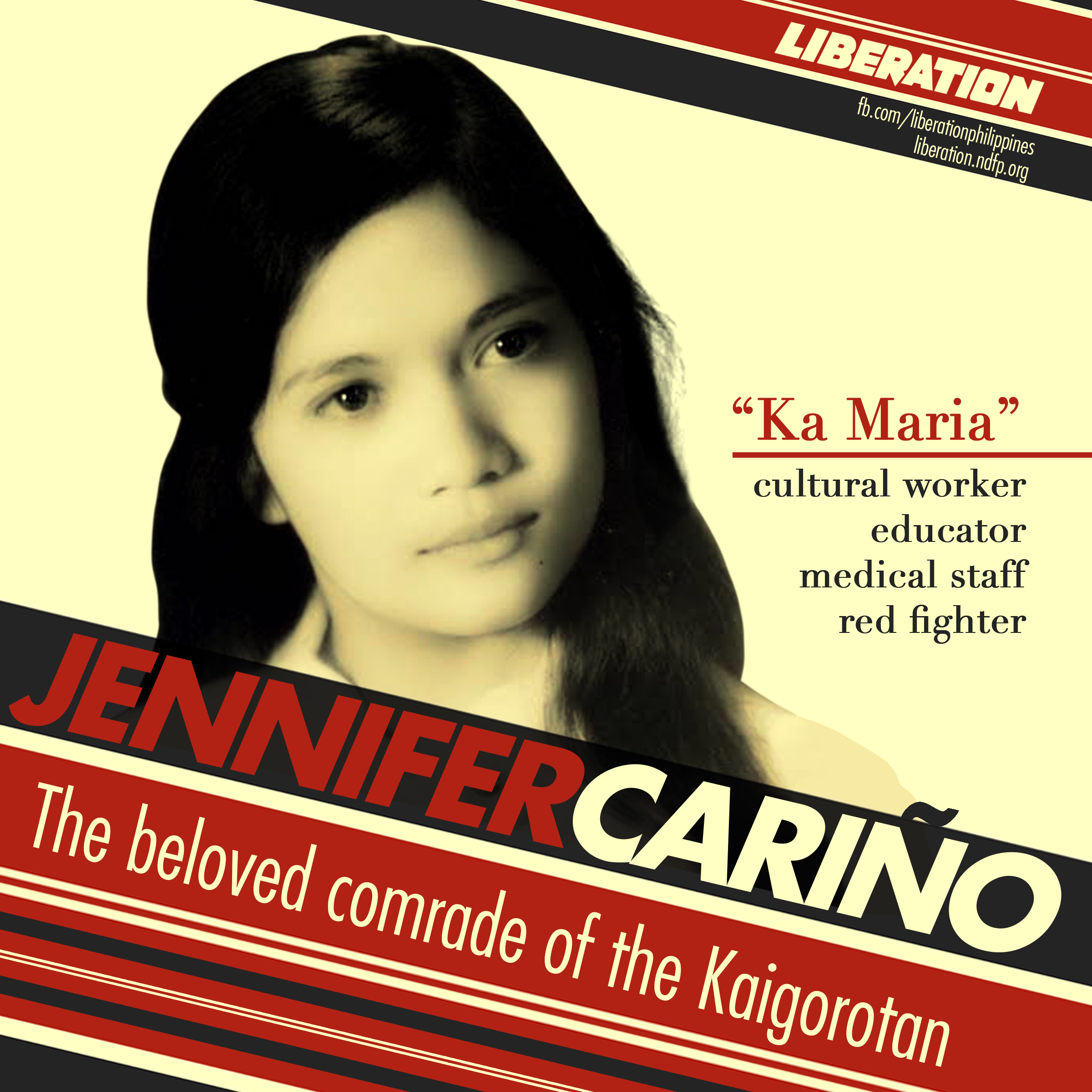
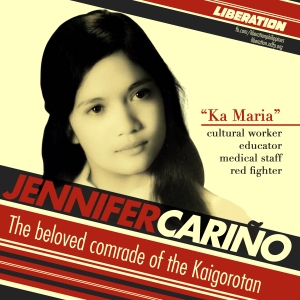 In 2017, the New People’s Army (NPA) in Benguet province launched a successful raid in a police outpost in the town of Buguias. Aside from confiscating firearms and ammunition and radio sets, the action was “punitive” because of the illegal and anti-social activities of the Buguias policemen, among them: extortion activities from vegetable farmers, drug trafficking, and operation of bars. The raid was led by the Jennifer Cariño Command-NPA.
In 2017, the New People’s Army (NPA) in Benguet province launched a successful raid in a police outpost in the town of Buguias. Aside from confiscating firearms and ammunition and radio sets, the action was “punitive” because of the illegal and anti-social activities of the Buguias policemen, among them: extortion activities from vegetable farmers, drug trafficking, and operation of bars. The raid was led by the Jennifer Cariño Command-NPA.
Long before Jennifer Cariño became a command, she was Jingjing, born on March 4, 1950 in Baguio City to a well-to-do and respected Ibaloy family. Her mother hails from Cebu. She was bequeathed the beautiful features of an Ibaloy-Cebuano blend. Her grandfather was the first Igorot Mayor of Baguio City where the family owned the land now occupied by the Camp John Hay.
Why would a young woman gifted with beauty and brains leave behind her affluent family and all the opportunities for a comfortable life and distinguished place in the professional arena for a risky and difficult life in a guerrilla zone, among the most impoverished masses, her kailian?
In Jingjing’s veins ran the blood of a fighter. Her grandfather, Mateo Cariño, filed a suit in the US court against the American intrusion into their land. In high school, Jingjing wrote an article in their school organ in protest of the remark of then Foreign Affairs Secretary Carlos P. Romulo that Igorots are not Filipinos.
Jingjing was a conscientious student. She was often seen alone in the campus grounds pensively poring on a book. In the classroom, she was never satisfied with mere statement of facts. She would dig deeper, posing no nonsense questions to her professors. She wanted more—realities and truths. She was indeed a no nonsense student. She was an A-1 student especially in Physics and Math courses at the University of the Philippines-Baguio.
But it was not all cerebral work for Jingjing. The music in her soul brought her to folk houses around the city, singing with the strum of her guitar. She idolized the Beatles.
In her junior year, Jingjing ran for the student council under the Progressive Party taking up the issues of lower tuition fees and removal of the Spanish course. That probably started her activism years.
In 1969, she became a member of the Kabataang Makabayan-Baguio Chapter. She led student actions supporting market vendors in their fight against demolition and striking workers in their demand for higher wages and better working conditions. Later, she dropped out of school and became full time activist. The music in her soul was shared with activists as they sang protest songs and staged cultural presentations in rallies.
In 1972, Jingjing married Gilbert Pimentel, an activist from the Lyceum University in Manila who was organizing Benguet farmers at that time. Gilbert also hails from the Cordilleras. They had a meeting of the minds on many political issues, particularly the national minority question. It was also on the same year when their house raided but she eluded arrest. Later, she left Baguio disguised as a nun.
When Gilbert was arrested after, Jingjing left her baby with her family with the fervent request that Malaya, her daughter, be apprised when she grew up of what her parents had fought for. She joined the NPA and lived in Ifugao serving the most impoverished masses in the Kalanguya territory. Ka Maria, as she became known in the guerrilla zone, taught the illiterate masses how to read and write. She also served as medical staff. And she did what she loved most, wrote revolutionary songs and taught these to the masses.
Her enlightenment from the campus DGs (discussion groups) on Marxism, Leninism and Maoism, the truth and realities she found from her integration with the masses, the oppression and exploitation doubly experienced by the national minorities of which she belonged and the invincible aspiration of the revolutionary movement to dismantle the unjust structures and end man’s inhumanity amplified her resolve to serve the revolution. And this resolve warranted yielding all her privileges and giving all her endowments for the revolution.
Ka Maria, the beloved comrade of the tribe, died in 1976 in Hungduan, Ifugao.

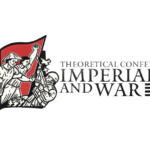
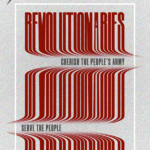

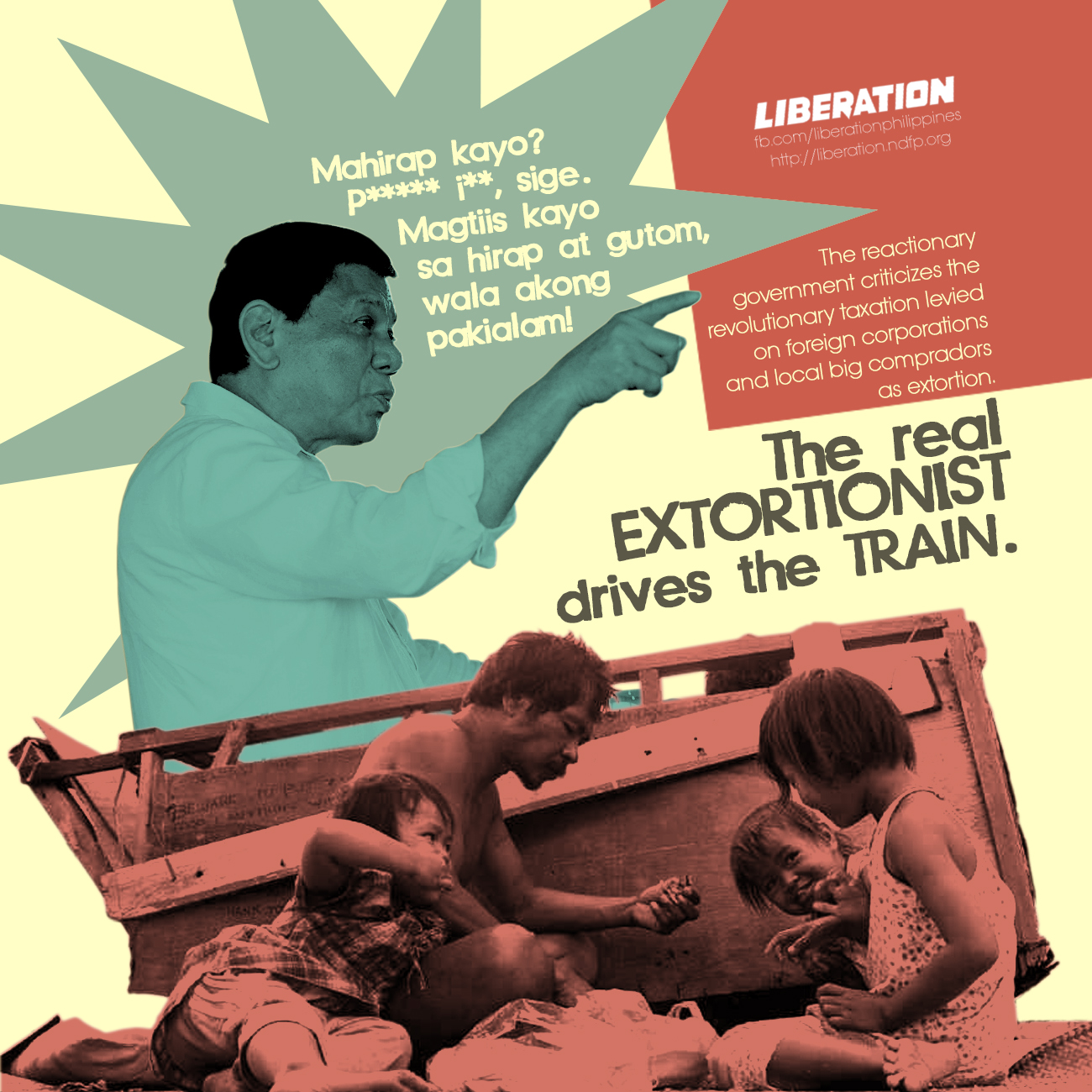

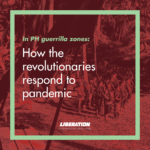
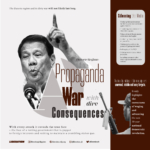
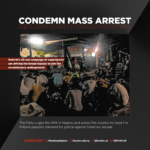

 But the scenario has slowly changed when members of the New People’s Army (NPA) double as people’s medics—holding medical missions and treating the sick as they move from one barrio to the next.
But the scenario has slowly changed when members of the New People’s Army (NPA) double as people’s medics—holding medical missions and treating the sick as they move from one barrio to the next.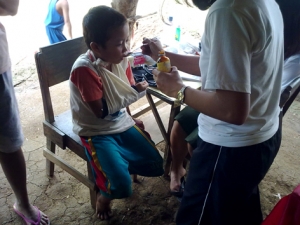
 The interest and enthusiasm of the masses and the NPA in the guerrilla fronts to learn are inspiring enough for the allies and members of MASAPA who come to the front to give their best to impart lessons not only on health care, preventive medicine and first aid but also on other nuances of medical practice.
The interest and enthusiasm of the masses and the NPA in the guerrilla fronts to learn are inspiring enough for the allies and members of MASAPA who come to the front to give their best to impart lessons not only on health care, preventive medicine and first aid but also on other nuances of medical practice.
